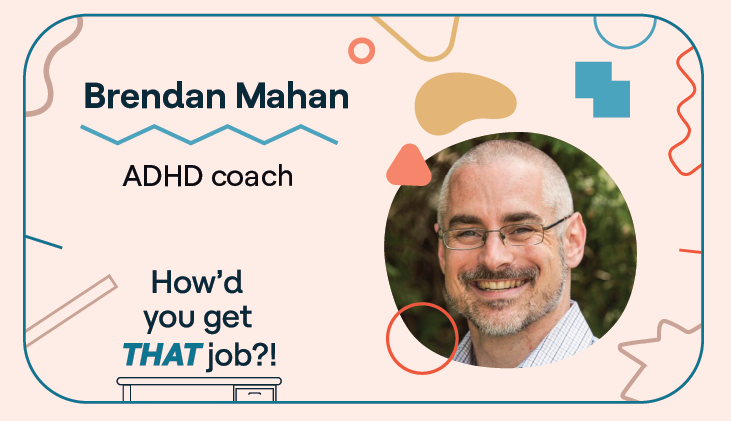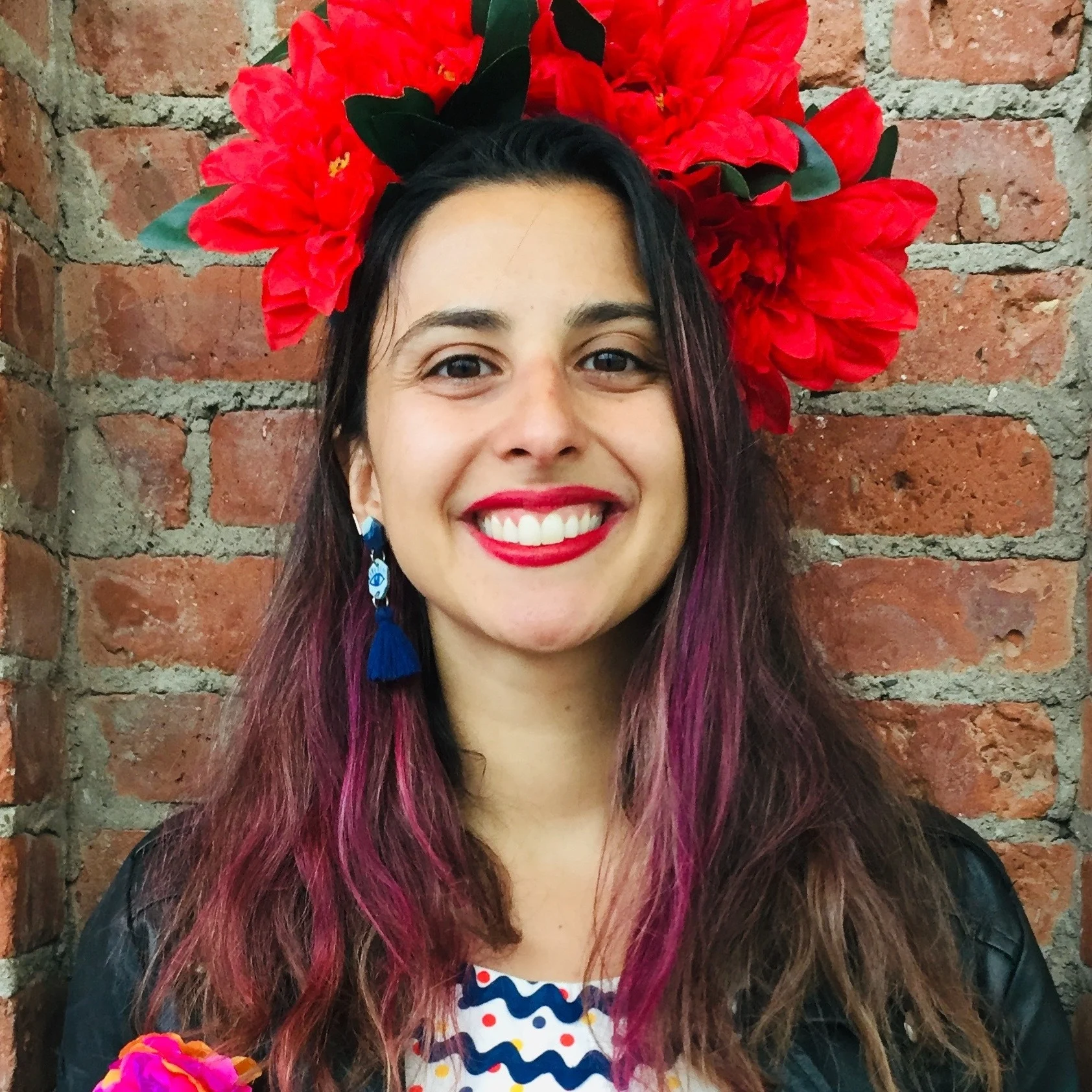Stay in the know
All our latest podcasts delivered right to your inbox.
Brendan Mahan has ADHD — and the drive to help others navigate their own ADHD journey. From a young age, Brendan knew he wanted to help people. When his college major options left little room to do that, he forged his own path. Now, he’s an ADHD coach and a podcast host. From parenting to marriage to the workplace, Brendan’s got you covered. And he’s there to remind you that it’s OK to have ADHD.
On this week’s episode of How’d You Get THAT Job?!, Brendan talks about how to stack different skills into the perfect combo of what works best for you. Find out why consolidating hobbies is a good move for people with ADHD. And get Brendan’s tips on finding the right career, how to self-advocate, and employer red flags to look out for.
Related resources
40+ career examples of people who learn and think differently
I’m finally letting go of the shame of ADHD and learning disabilities
Episode transcript
Brendan: A lot of what I do, sort of subtextually, when I'm working with, folks, is I just give people permission to have ADHD. I just spend a lot of time saying, "That's OK, you're allowed."
Eleni: From the Understood Podcast Network, this is "How'd You Get THAT Job?!," a podcast that explores the unique and often unexpected career paths of people with learning and thinking differences. My name is Eleni Matheou, and I'm a user researcher here at Understood. That means I spend a lot of time thinking about how we find jobs we love that reflect how we learn and who we are. I'll be your host.
Do you ever feel like you need a coach to help you get through work and life or really just through the day? I know I sometimes do. Our next guest made a career out of coaching, specifically ADHD coaching. Brendan Mahan is an ADHD and executive functioning coach and the host of ADHD Essentials podcast. He helps people manage the challenges of ADHD in life. I'm going to talk to Brendan about how he built his career as an ADHD coach. I'm also going to ask him about the biggest challenges for people with learning and thinking differences in the workplace and how to tackle them. Welcome to the show, Brendan.
Brendan: Thank you.
Eleni: I would love to start from the beginning. Like, firstly, what does it mean to be a coach, just in general?
Brendan: So, coaching is, it's not counseling, right? Like, it's not the same thing. Coaching is focused on skill-building and goal setting and goal achieving. And when it comes to ADHD coaching, there's absolutely some psycho-educational stuff that happens around like "What is ADHD?" and "How does it work?" and "Why do we make the mistakes that we make?" And I say we because I have ADHD. So, when I'm working with a client, oftentimes I've had similar struggles to what they're facing. And that's part of what makes me good at what I do is a client will come in and we'll be working together and I'm like, "Oh, I've made that mistake. I know how to navigate that one," right? I might not have the perfect solution for them, but I at least have the beginnings of an idea. When I meet with the client, I'm not there to be like the super expert guy who knows everything and come and bring me your problems and all that stuff, right? They know what their tendencies are, they know what their struggles are much better than I do. But a lot of it is trying to ask good questions, trying to help people get clear on their goals or their values or what it is that they really want or don't want, those sorts of things.
Eleni: Yeah. I was going to ask, what is a typical scenario where someone might come to you?
Brendan: The adult clients that I work with are typically going through some kind of a transition. They might be looking for a job. They might be starting a new job or struggling in their job and now they're at risk of losing it if they don't clean up some challenges. I have folks who come to me because they're struggling in their marriage and trying to understand each other better. And I work with parents who have kids who are struggling with ADHD or the parents have ADHD and they're trying to navigate their kids more effectively.
Eleni: Yeah, sounds super helpful. So, I know you already talked about you have ADHD yourself and, you know, that's one of the reasons that, you know, you're really great at what you do because you're able to empathize with the experience and like bring your own, personal story to that. And I know when we were preparing for the interview, you told me that you became the person that you needed growing up. So, I'm curious, like, why coaching was the way to be that person? Like, who is the person that you needed growing up? I guess.
Brendan: I needed someone who understood how I worked and really someone who understood ADHD and could normalize it for me. And those people kind of didn't exist. ADHD back then was "That kid is a problem," right? "That kid can't sit still and is attacking other children or running through the hallways screaming or something." And that wasn't me. I was a space cadet. I was not tuned in and I had hyperactivity, but it was all in my thoughts. It wasn't coming out physically so much. So, I needed someone who could guide me to help me understand why I couldn't meet with success. When I was so smart, I was the kid who everybody was like, "Yeah, he is really bright. He just doesn't apply himself." And I was applying myself as much as I could. I didn't know how else to apply myself, and that's why it looked like I wasn't applying myself. I didn't know how to study. I didn't know how to break a big task into small chunks. I didn't know how to attack a project. And when I did get hooked into something and I did get interested in something, my teachers didn't understand it. I wrote an essay on the history of comics in the 1980s. And like, in my junior year in high school. Yeah, because I was a big comic book kid and it sent me into areas of comics that I didn't read when I was in high school. And I got like a C-plus on it and I had never worked harder on anything. I've never been more engaged with anything. But my turns of phrase and things that I thought were clever were not clever according to my junior year English teacher, you know? And so, my kind of interests and imagination didn't match up with what school wanted. And I didn't get the grades that I sometimes felt like I deserved as a result.
So, when I say that I became the person I needed, that's really what I mean, is I'm here to talk to a kid and the parents and have them say like "We don't know how to do this assignment. I don't know how to get my kid to clean the room," whatever. And for me to say, "Yeah, that's OK. That's ADHD. Like, we're going to learn how to do this. We're going to work together and figure out how do we get this stuff done." And also, a lot of what I do, sort of subtextually, when I'm working with folks is I just give people permission to have ADHD. I just spend a lot of time saying, "That's OK, you're allowed."
Eleni: Yeah. And it's interesting that you said a big part of it is normalizing struggle, because that's a big part of why this podcast exists, you know, sharing stories and like normalizing challenges and struggle, and also demonstrating that they can be a success, right?
Brendan: I pulled it off somehow. I'm sitting here before you as a guy who has two master's degrees and runs his own business and is married to his wife of — I'm going to get this wrong. So no, 2004 — of 18 years, we've been together for 18 years, which is that's a long time. That's a big deal for people in ADHD circles. We often don't pull that off. And we have identical twin sons who are 13 years old and we're making it work.
Eleni: That's amazing.
Brendan: Yeah. So, yay success!
Eleni: Yay success!
A big part of this podcast is talking about how people got to where they are in their careers today. I would love to hear a little bit more about your story and also like, you know, sharing some of the struggles that you encountered along the way.
Brendan: Yeah. My story, I think, is a story of stacking skills in a lot of ways. When I was in high school, I was in a early childhood development class. That meant that I like learned about young kids and I also worked at the preschool that existed in the basement of my high school. And that led me to the Future Teachers Program, which is just like a place you kind of went and shadowed a teacher and worked with them a little bit. So as far back as, what is that? like 14, 15 years old, I was doing kid stuff. I was kind of figuring this out. And then I went to college and I majored in psychology, which didn't at all give me what I wanted. I wanted to learn how to be a counselor. And undergrad psychology is really a history course. It's like this is the history of psychology. Like, here's who Sigmund Freud is and Howard Gardner and all this kind of stuff. And I didn't care. I was like, "What? What does this have to do with helping people? I want to learn how to help people." So, I shifted into English to try to become a writer. The English department was like, "You could only take two classes on writing for your entire major." I was like, "But why is it that psychology is going to make me learn history and do experiments and won't let me work with people and learn how to be a counselor? And English won't teach me how to write. They'll only teach me how to read and criticize books." This is insanity. Like it drove me nuts. That's the ADHD part. The part that's like, "I don't care about how the world works. I care about how I think the world should work and I want to do it better."
So luckily, UMass had a program. They'll let you design your own major, and I ended up designing my own major, that I called creative writing for sort of marketing purposes. But I really majored in comic books, because that comic book passion was still in me and I learned how stories work. And that brought me to myths and legends because I built my own major. I was like, "Well, superheroes are all myth and legends, so let me like, learn about Arthurian myth and The Iliad and The Odyssey and all this kind of stuff." The nutshell of the rest of my journey is I got a license in elementary school teaching, and I worked as a teaching assistant and I worked as an elementary school teacher. And then a middle school teacher, spent some time working in summer camps. And I also was an English teacher, right? When I did middle school. So, I was teaching stories and writing and communication. That was my jam. And then I left the classroom and got a degree in guidance counseling.
And so, coming into being a podcaster and working as an ADHD coach, my skill stack is I have a lot of skills around kids specifically, which is why I'm good at the parenting stuff. I have a lot of skills around counseling and communicating and teaching, and I understand story in a way that not everybody does. So, that skill stack combines to let me be a really good podcast host because I can hear the stories and find out where I want to go and what's the through line. And when my clients are talking to me, I'm able to do some story stuff, right? Like "What's the story you're telling yourself and are you the hero in the story? Are you the villain? Like, what does that mean? What do we want to do with that? How do we want to play with that?" And I'm good at communicating and teaching and that helps with the "OK, here's the ADHD stuff. Let's explain and explore what that is."
Eleni: You mentioned this idea of stacked skills. And I'm curious, like, what you mean by that, and then also how you apply it for the people that you're working with. Is that a tactic that you use with the people that you're working with, like, to guide them to find what that skill stack is? And like what does that kind of look like or how are you able to, you know, extract that?
Brendan: It is sometimes, if it's appropriate, right? Like if we're doing career stuff or I've got a parent that's worried about their kid, thinking their kid isn't good enough or something, then we'll poke around and say, like, "What are the skills that are inside that we want to pull out? How do we want to play with this stuff?" I have a client that I work with who was looking to be an ADHD coach, and she went and like got all this ADHD coach training because her kid has ADHD and she was like, "I want to be an ADHD coach," but also kind of doesn't really have the right time to do that because her kids still need her. So, when she could be coaching kids, which is what she wants to do, her kids need her to be home with them. But the career she's coming from is accounting, right? So, we've been talking on and off about "You could just consult on accounting. You could do that when your kids are at school and probably make the same, if not more money." And she was sort of like, "But I spent all this money on the coaching training courses," that sunk costs fallacy of like, "I have to do this because I spent time and money on it." And then I said to her, "Well, let's look at your skill stack, right? Your skill stack is accounting and you have all of this ADHD stuff. And also, you're a small business owner, so you know how to run a business. What if we just pulled the ADHD stuff out of your ADHD information and reskin all of it as productivity? Like, how do you get stuff done? — which is a big challenge for folks with ADHD — And then we blend in accounting and the fact that you're a small business owner, you could be a coach working with people who are starting businesses or trying to improve their business." That really anchors her productivity and entrepreneurial experiences to allow her to now focus on being a business coach with more credibility than someone else might have.
Eleni: Yeah. That's a great example of how to make all of those connections. One thing that I've heard in the research is one thing that ensures that people are really successful in their career is building like awareness skills and navigation skills. And, you know, navigation skills are like taking learning from one context or environment and applying it to another. And it sounds like you're talking about something really similar there.
Brendan: Yeah, it is. To me, the term I use for that is skill transference, right? Being able to transfer a skill from one life domain to another life domain. But it's the same idea. And, and that's critical, especially for people with ADHD, because folks with ADHD tend to have wide and diverse interests and we tend to like do something for a little while and then stop. And then go somewhere else for a little while and then stop and then go somewhere else while at the same time doing seven other things as hobbies, right? And if you think of all of those things as on their own little islands, it feels like a waste of time, right? Like "I did this career for a little while and then I did this career for a little while, and I did this career for a little while. And also, I have these seven other hobbies." But if you start to consider how those things intersect and how they inform each other. And especially if you wonder if there's a pattern hiding inside of all of those things, it really helps us to find a job, to find a career. Because we start to see what the unifying themes of our life are and that's as much as that’s education and that thought process on my end as a teacher, it's also my writing skills. It's also — to go back to my own skill stack — it's also like you read a story, what's the theme, right? Like what's this author trying to say? We can kind of do that with our own lives, like, what these pursuits that we've had in the course of our lives, what does that say about the things that we hold value in?
Eleni: Yeah, and it's interesting because being able to identify themes and patterns is a skill, but it's not traditionally what we would think about. It's only really through doing this work. Then I was like, "Oh, you know, my ability to maintain friendships is a skill. My ability to like, be able to build rapport with people really quickly is a skill." But I would never have thought of that as a traditional skill until, yeah, doing these interviews in a sense and hearing people's stories and reframing it in that way.
Brendan: And when I work with a client, right? — and this is a little trickier to get to — but when we talk about something and I mentioned that it's a skill that they have and they kind of blow me off, right? Because I'm sure that happened to you at some point. You were like "Being able to maintain friendships and connect with people quick, like that's not a big deal. That's not that's, like, everybody can do that." You're like, No, that's how you know, that's huge. Like, if you think it's nothing, if you think everybody can do it, that's probably one of your strongest skills because you don't value it because you think everybody can do it. That happens because it's so easy for you and so you kind of take it for granted. And that means that's probably one of your strongest skills and a really important thing to pay attention to.
Eleni: Yeah. Which is why it's so valuable to have someone giving you that outside perspective to say "Actually, no. Not everyone is good at that thing." Yeah, I'm glad that you brought up this idea around having, like, a lot of interests, because I hear that a lot in my research. Like, a lot of ADHD folks have a lot of interests and they feel really overwhelmed and they're not really sure how to make a decision. So, I think what you just talked about is a really good framework to think about. How can you take a step back and look at the patterns and how some of the interests are, you know, interconnected?
Brendan: Yeah. And what is the itch that, that those hobbies are scratching, right? Like, maybe you can have three fewer hobbies because they're all doing the same thing, right? Like if you're big into knitting and you also love to draw and you're starting to learn how to do pottery, like you just want to create, like, pick one of those. It's going to scratch the itch. You don't have to do all three. You can do one of them and get really, really good at it. And then maybe you transition over to another one later when you've mastered knitting, now you're going to pivot over to drawing and see how that informs each other. But folks with ADHD, we often get really excited at the beginning of something because it's engaging and it's new and we don't follow it long enough to get mastery with it because something else comes along that is engaging and new and it probably is scratching the same itch. It's probably like addressing the same need in us as a person, but because it's newer, we get more excited about that. And one of the long-term consequences of that is we start to feel bad about ourselves because we're not good at anything as far as we are concerned.
Eleni: Or because there isn't that follow through or being able to stick with something. Actually, that was going to be my next question because we hear, well I hear a lot in my research, about this notion of what we've kind of coined starter energy, which I think you actually also use that term. Yeah. And you know, I would love to talk about how that might apply in a career sense because, you know, you can also imagine that people get really excited by a new job and then that excitement might wear off, you know, they might become bored or restless for whatever reason. And I'm curious how you, I guess, navigate that or how you address that, like in your sessions or like if it even comes up.
Brendan: Yeah, starter energy is a double-edged sword, before we even get to move past it, right? Cause sometimes it makes us really engaged with this new job and other times it makes us really anxious when we start this new job. It depends on what happens in the job, right? I had a client who started a new job, was really excited about it, and they tried to onboard him gently. So, they were like, Yeah, we're just not going to give them a lot of stuff for the first month. And as a result, he was spinning his wheels and his anxiety skyrocketed because he wasn't doing enough and he was like, "Am I even earning my money? Is it OK that I'm here? Do they not trust me?" And they were just trying to help them along smoothly. They didn't want to overload him. In an effort to not overwhelm him, they ended up overwhelming him with a lack of stuff as opposed to too much stuff. So, that's a risk that exists. But hopefully will go with like you start the job, you're excited, you're engaged, you're going gangbusters. But yeah, then I don't know, three months, six months later, maybe a month — depending on how severe the ADHD is and what the job is — all of a sudden, you're like "Eh, the bloom's off the rose. I'm just not excited about this anymore." And the permission side of me that likes to just say like, "No, this is normal. You're allowed to have this happen." People just hearing this, I like to think now they know that that's a phenomenon that exists, so, when it happens to them, maybe they can write it out better. Maybe they can go like, "Oh, this is normal. I was probably more excited about this job in the past couple of months, and now I'm coming in for a landing and I'm right around where everyone else is." This is a reasonable amount of energy and excitement to have. It's going to prevent you from burning out. It's going to let you settle in and be productive and do the things. Hopefully, ideally, or maybe it doesn't. Maybe there isn't enough energy and you're having trouble engaging. And if that's the case, you have to get to your why, right? Like, why is this job important? Why do I like this job? Which of my themes in my life does this job connect with and embrace? And how can I keep my eye on that so that I don't decide that I should just leave because it's boring?
Eleni: Yeah. And perhaps if you do want to change what you would get out of that change.
Brendan: And can that change happen within the organization you are already in? Like, can you just ask to make some tiny changes to the job you have, and all of a sudden it's more engaging, right? Like maybe you thought you were going to work with customers more than you are and you love talking to people. But it turns out there's just a lot more paperwork than you were expecting. Is that a thing that can be negotiated?
Eleni: That's really good advice.
Brendan: Thank you.
Eleni: I can see this is what you do.
Brandan: It is.
Eleni: Well, I think that kind of relates to a question I had really about advocating at work, because there's a couple of things, like, for one, a lot of people I talk to aren't really aware of what their challenges might be until they enter a particular environment or they start a task that they find challenging. And they don't always link that to their differences. And then, you know, even if they know it's related to their differences, they don't really know what to ask for within the organization. So, I'm wondering if that is something that you hear and, you know, how you would go about approaching that?
Brendan: I do hear that. I do hear people say like, "Well, I don't really know what my weaknesses are or what I would need help with." And I've said that, right? Like, of course I've said that. And that's some nonsense because of course we know what we're bad at. We just don't want to admit it because it's terrifying. Like, I absolutely know what I am bad at and so do all of my clients. They just don't want to admit that to themselves half the time, let alone to a boss, right? It's terrifying to go up to your boss and say, "Hey, so like really tight deadlines, I'm bad at that." Like goodbye, you're like, my boss is going to fire me on the spot. Like, I can't say that. But you don't know because maybe your boss is going to go, "Oh, cool. Well, what do you need? Like a couple of days of wiggle room or something? Do you just always need five days before something is due? We can figure out how to make that happen. That's not a big deal." Yeah, like they don't want you to miss the deadline. That's the goal. The goal is not to be good with short deadlines. The goal is to not miss the actual deadline. So, if we can get the deadlines sooner, maybe that helps. I don't know. Whatever needs to happen. Your boss hired you because they think you can do the job. You have a seat at that table because people want you at that table and they value your input. So, asking for some accommodations, asking for some help here and there, and telling them what you need to be as successful as you could possibly be for them, they should want to provide you with that. If you have a boss that doesn't want to provide you with that, bounce. Because that job is going to become toxic eventually, it's going to burn you out. Find a job that's more supportive of you.
Eleni: So, what are some of the biggest challenges you see for like young people with ADHD or like other learning differences in the workplace?
Brendan: This is a challenge for ADHD, but it's not an ADHD symptom. It's more an ADHD side effect. People with ADHD often struggle with self-advocacy. Because we struggle so much in general, there's a lot of guilt and shame that comes with that, right? Like "I'm always late and I never do the thing fast enough and I always lose track of things and forget stuff" and these sorts of things. And so, as a result, when we're struggling at work or even when we first start a job, it's hard for us to say, these are the things that I need, because we feel like it's our fault. We feel like, "Well, I'm not worthy of an accommodation. I'm messing up because I stink at life." And oftentimes, we don't advocate for ourselves until we're already in a ton of trouble. We just have to work on getting more comfortable with advocating for ourselves earlier. And some of that is Google how to advocate for yourself and get some scripts so that you can go up to your boss and already have a plan for how you're going to ask what it is that you need. Like you don't have to make anything up anymore. It's all on the internet. So, whatever it is that you need to be able to say, someone somewhere has a blog post about it. Or a podcast about it. Or, like, there's a meme that's going to help you.
Eleni: That is so in line with what I hear in my research. Like the one, you know, we talk about learning differences being invisible, and so, often people will wait until the invisible becomes visible, whether that's, you know, not being able to keep things together or missing deadlines or letting people down in whatever way. We talk about having to reach some sort of breaking point before, like really stepping up. And then also, I think it really relates to the point that you were making earlier around really feeling, like, valued and trusted to do your work before asking for support. So, it's like the relationship with your manager is so important for that reason because you know, and, and also self-confidence. If you're not able to recognize your own value, then it's very difficult to actually say, "Well, you're going to get the best version of me if you give me this, this, and this, like, ultimately benefits you as the employer." So I think that's really interesting. One thing I've learned in my research is the importance of role models, champions, mentors in building self-confidence, which we talked about. And also, just exposing individuals to different possibilities when it comes to careers. Really, just like even one positive influencer can have a really big impact, which is partly why the podcast exists. But I'm interested to hear how that applies to your work and how you might help people find their people or if you're that person.
Brendan: Yeah, I mean, hopefully I'm that person, right? Like that's kind of my goal is to be the person I needed when I was a kid. Now I want to be that person for kids, adults who have ADHD and are struggling and trying to figure themselves out. So, things that I do. I have a podcast as well called ADHD Essentials. It's aimed primarily at parents who are affected by ADHD, but there's plenty of people who are just, have ADHD who listen to it, and they just skip the way more parenting-oriented podcast episodes. And I run online parent coaching groups for specifically parents, and I work one on one with adults. So, I try to be that person more directly in that way. But I think that the modern age of like social media and podcasting and YouTube and all that stuff is a great way to find those mentors in a virtual manner, right? Like if you can actually talk to them, awesome. There's nothing's going to beat that. But if you want to feel someone out first and they have a podcast or a YouTube channel, start there and get an idea of what you think of them and then call them up, email them, whatever. However, go to Instagram, whatever the method is that they have, and connect with them more directly.
Eleni: Love it. Thank you. Well, thank you so much for being here.
Brendan: Thank you for having me. This has been awesome. I really enjoyed it.
Eleni: This has been "How'd You Get THAT Job?!," a part of the Understood Podcast Network. You can listen and subscribe to "How'd You Get THAT Job?!" on Apple, Spotify, or wherever you get your podcasts. And if you like what you heard today, tell someone about it. "How'd You Get THAT Job?!" is for you, so we want to make sure you're getting what you need. Go to u.org/thatjob to share your thoughts and to find resources from every episode. That's the letter U as in Understood dot O-R-G slash that job.
Do you have a learning difference and a job you're passionate about? Email us at thatjob@understood.org if you'd like to tell us how you got that job. We'd love to hear from you. As a nonprofit and social impact organization, Understood relies on the help of listeners like you to create podcasts like this one, to reach and support more people in more places. We have an ambitious mission to shape the world for difference, and we welcome you to join us in achieving our goals. Learn more at understood.org/mission.
"How'd You Get THAT Job?!" is produced by Grace Tatter. Briana Berry is our production director. Our theme music is written by Justin D. Wright, who also mixes the show. For the Understood Podcast Network, Laura Key is our editorial director. Scott Cocchiere is our creative director and Seth Melnick is our executive producer. And I'm your host, Eleni Matheou. Thanks again for listening.
Host
Eleni Matheou
leads user research for Understood. She helps Understood to center its work on the lived experiences and voices of people who learn and think differently.
Latest episodes
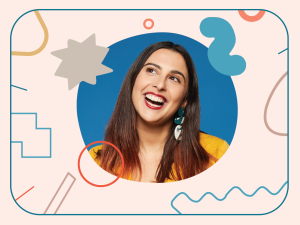
June 28, 2023
In the series finale of How’d You Get THAT Job?!, host Eleni Matheou unpacks what we’ve learned about how people thrive at work.

June 14, 2023
Nathan Friedman is the co-president and chief marketing officer of Understood.org. And he has dyslexia and ADHD. Learn how he got into the C-suite.
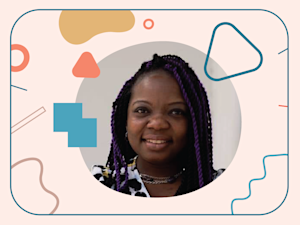
May 31, 2023
Dr. Loucresie Rupert is a child, adolescent, and adult psychiatrist with ADHD. She didn’t have an easy time getting her diagnosis as a Black woman.
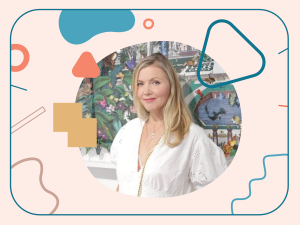
May 17, 2023
Kristjana Williams is a London-based Icelandic artist with dyslexia. She wasn’t diagnosed until she was 25, and now she has her own studio.

May 3, 2023
Aideé Chávez Frescas has ADHD, and is a senior social media manager at Understood. Her posts help end stigma and show others they’re not alone.
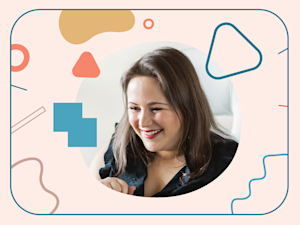
April 19, 2023
Alex Gilbert is a career coach with ADHD and dyslexia. After working in leadership development for years, she started her own coaching business.
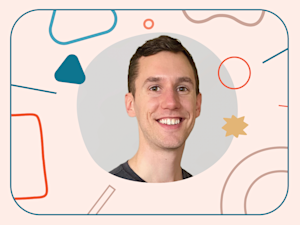
April 5, 2023
Dan Reis was diagnosed with ADHD during the pandemic. Now, he’s made it his mission to explore coping strategies to help him get his work done.
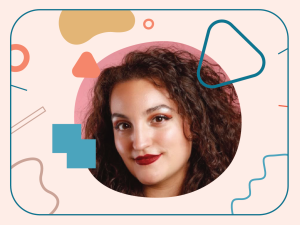
March 22, 2023
Rachel Basoco’s two jobs keep things interesting for her ADHD. She works full time at Fidelity, and part time at 11:11 Media, Paris Hilton’s company.
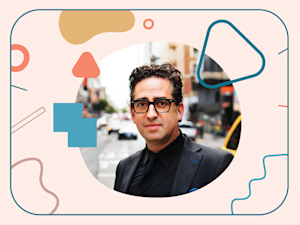
March 8, 2023
Gil Gershoni says that everything he does is dyslexic. He founded the branding firm Gershoni Creative and hosts the Dyslexic Design Thinking podcast.
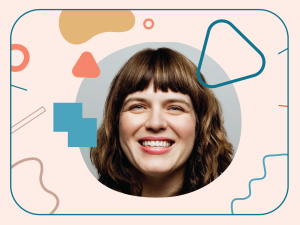
February 22, 2023
Claire Odom is a psychotherapist with ADHD. She’s also a disability inclusion consultant who has advice on navigating the workplace.
